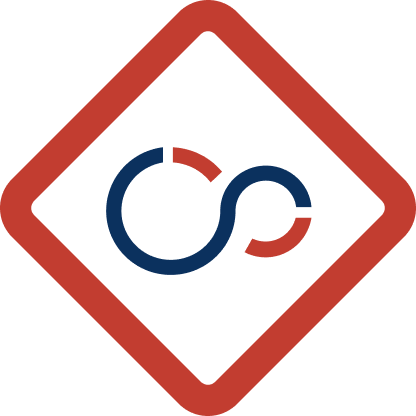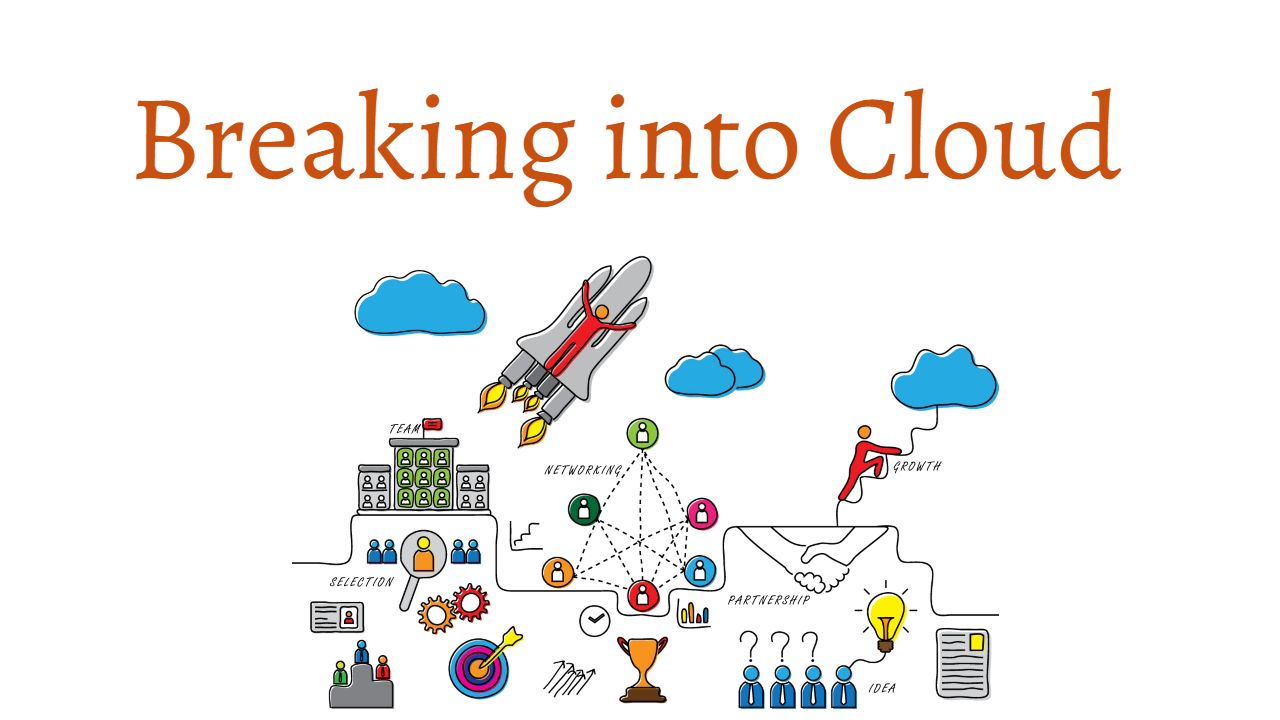As the remote work trend is growing, the cloud computing market is also expanding at a massive scale. Some of the popular cloud service providers like Microsoft, Google, and Amazon are pushing out new cloud tools and services every single day with new features and updates. Whether you like it or not, all IT professionals will have to keep up with the pace and adapt to the change.
Cloud Career is promising and convincing as it has been replacing the old mindset and shifting organizations towards an agile and proactive culture of working. Organizations are looking to expand and stabilize with the increased demand for computing and resources. Most of the time, that either means migrate to the cloud completely or setting up a hybrid infrastructure to use the current on-prem system in conjunction with cloud resources. With the lack of cloud knowledge and skills, it’d be harder for traditional IT roles to deliver those skillsets and accomplish the organizational goals.
Whether or not you are using any cloud technology already, there’s no denying that it’s just a matter of time before your organization feels the need for cloud adoption and starts looking to outsource the resources to plan on migration. With new tools and technology in demand, the traditional IT helpdesk roles would soon get outdated, and eventually, the demand for those roles would drop significantly as well. This has also resulted in increased Cloud Computing Jobs and more demand for cloud skills with up-to-date knowledge of ongoing development and enhancements in the technology.
In this article, I’ll walk you through some of the Cloud Computing basics and introduce you to some of the popular cloud jobs out there, and how to get your foot in the door. Let’s begin!
What is Cloud Computing?
Cloud Computing is the delivery of computing services over the Internet (“the cloud”) to offer faster innovation, flexible resources, and economies of scale. The services offered in the cloud usually include compute, database, caching, storage, networking, intelligence services, and much more than that. The biggest benefit of this approach is that you pay only for cloud services you use which helps you lower your operating expenses (Opex). Lower OpEx cost gives you the ability to run your infrastructure more efficiently, and scale on demand when needed.
Cloud Roles and Responsibilities
You might be wondering what cloud roles are available for anybody looking to move into this field. Whether you are a helpdesk professional or database administrator, you can always build on top of your current skills and get ahead of your peers.
Everybody will have their unique cloud journey as it’s not straightforward on what you would be doing in the cloud. If you have managed Exchange and SharePoint Server on-premises, it’d a gradual shift for you to learn SharePoint Online and Exchange Online to work on migrations and deploy Hybrid environments. If you are doing Network or Server Administration, you might end up working as a Cloud Engineering or Administration where you leverage your previous skills to perform a lift and shift to the cloud or build scalable systems in the cloud.
Here are some of the common roles in the cloud. The responsibilities may vary based on the organization’s definition of that particular role.
Cloud Operations/ Engineer/ Administrator
Cloud Operations position is focused on managing the cloud resources and making improvements to existing running infrastructure. This is a challenging position as it’s a mile wide and inches deep’ where you are required to know high-level functionality and applications of cloud services. This role is considered to be an associate-level position where you’d be deploying cloud resources and managing them at the same time in most scenarios.
Some of the popular Fundaments and Associate level certification exams mentioned in the next section are best fit to gain a high-level picture of cloud services and implementation strategies as well.
Site Reliability Engineer (SRE) or DevOps Engineer
SRE or DevOps Engineer is another position in demand right now with the shift in the industry to be more agile and build scalable infrastructures. SRE role is definitely an Expert level role that required you to build high-available and scalable infrastructure using Infrastructure as Code (IaC) and implement DevOps practices leveraging CI/CD tools.
Some of the mandatory skills required for this position include the knowledge of CI/CD tools like GitHub and Azure DevOps, Jenkins, GitHub, and definitely Terraform. Make sure you carry these under your belt before going for any DevOps positions as you will probably need these at some point during your DevOps career.
Solutions Architect
Do you like building solutions for a business problem by analyzing the pain point of the customer? If yes, then this position is for you!
Cloud Solutions Architect role is an Expert level role where you’d be analyzing the organization’s problems and suggesting solutions that would help solve their issues using cloud technology. As you can tell already, you need to know about all the cloud services being offered by any particular cloud provider and it’s capabilities as well to make any suggestions and recommendations. This role is usually a gradual shift from Cloud Operations when you get familiar enough with all the cloud services by managing the workloads in the production environment.
Data Analyst or Security Engineer
Being a really new topic of discussion, there’s not a lot of title in Cloud-specific roles as organizations are still trying to figure it out because of the shortage of skill with increased demand in the last few years. It’d be highly unlikely that you’d be doing solely network administration or security engineering in any cloud role. It’d be a mix of knowing at least a little about most of the cloud services.
Choose the Right Certification
So, what does it take to be a Cloud Professional? You always want to start by identifying what your interests are and what motivates you to get up in the morning. Is it Database Management, Security, Systems, Machine Learning, Analytics, or Architecture? Start by setting some targets and goals if you want to get ahead. The certificates would helps you a long way in your cloud and professional IT journey, if you use them correctly. To your surprise, while studying for an exam, you discover new tools and services that you wouldn’t use otherwise in your day-to-day role. It’s a useful tactic to explore what other cool stuff is being offered by the cloud vendors.
Below are some of the Popular certification exams from Azure and AWS, side-by-side that would help you set your foot in the door.
Azure Fundamentals (AZ-900) or AWS Cloud Practitioner (CLF-C01)
Both Azure Fundaments and AWS Cloud Practitioner are the first exams in the Cloud Certification list of each vendor which you should definitely go for if you are passionate about cloud technology. It tests your fundamental knowledge about cloud and introduces you to the terminology and some of the offerings of that particular cloud vendor.
Azure Administrator Associate (AZ-104), AWS SysOps Administrator (SOA-C01), or GCP Associate Cloud Engineer
There is no pre-requisite for any of the three exams though, however, it’s highly recommended to take fundaments exams so that you can at least clear your basics before diving in too deep. All of these associate-level exams teach you all about implementing, managing, monitoring, and orchestrating cloud services. Put this second exam on your list!
Azure DevOps Engineer (AZ-400), AWS DevOps Engineer (DOP-C01), or GCP DevOps Engineer
If you looking to work in DevOps Role, this certification will set you up for DevOps Expert positions as it introduces you to the best practices and using the continuous delivery tools required to do the job.
Azure Architecture (AZ-3xx), AWS Solutions Architect (SAP-C01), or GCP Professional Cloud Architect
Working as a DevOps or Cloud Engineer for a few years would give you enough expertise and confidence to start building the solutions for your clients and prospects. Solutions Architect exams will help you advance your career and prove the necessary skills required to do the job.
Build a Portfolio
Simply knowing about how to do something versus actually performing the necessary steps are two different things. A professional certificate does prove your knowledge however, your portfolio will reflect your ability to perform the tasks and show your work. Be sure to build your online portfolio and include any project that you might have worked on recently. If you don’t have anything to showcase, start off by building small personal projects that you can showcase on your profile for your next potential employer.
Build your Network
You may not realize it, your professional networking can be more effective in landing you a job than walking into an interview with no reference. Attend the meetups and connect with people from the industry who are already doing what you are potentially trying to achieve. A good reference and professional certifications will likely give you a preference over somebody with more experience and no reference.
Always be Learning
Is it easy being Cloud Professional? Yes, if you keep up with continuous learning and adapt to emerging technology. While there are new tools and services getting updates and new features every single day, keeping up with everything is tough! However, staying up to date with the tool that you are using every day will be more than enough to stay on top of the changes and learn as you go along. Be sure to subscribe to RSS feeds for your topic of interest and the service you are working with on daily basis.
Do you have any questions or want to clarify something? Reach out to me on Twitter or leave a comment down below.
Discover more from Parveen Singh
Subscribe to get the latest posts sent to your email.






